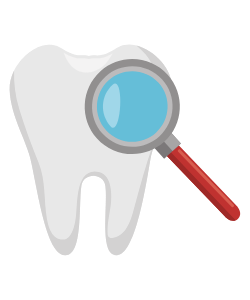If you're someone who puts off dental check-ups because your teeth feel fine and you don't think you have any cavities, you may be surprised to learn your dentist can spot the signs of a number of non-dental health conditions during a routine appointment. Early identification of symptoms often goes hand in hand with successful treatment for serious health issues, so regular dental appointments should be seen as a vital part of your personal health and wellness plan. Here's an overview of three conditions your dentist can spot symptoms of:
Type 2 Diabetes
Oral signs of type 2 diabetes include distinctively fruity breath, frequent dry mouth and cold sores. Your dentist may also suspect diabetes if you have swollen gums that bleed easily, as some research suggests gum disease is a strong precursor to the development of type 2 diabetes. As diabetes weakens your immune system, those with the condition are also more likely to develop oral thrush. The yeast that causes oral thrush is present in everyone's mouth in small numbers, but when you have type 2 diabetes, the yeast can multiply quickly and leave you with a white coating on your tongue that's indicative of an underlying condition.
Cancer
During a check-up, your dentist will examine the soft tissue inside your mouth for signs of oral cancer, such as ulcerations, small lumps, tissue swelling and white or red patches on the tongue or gums. Your dentist may also feel the glands in your neck to check for swelling, which can be a sign of throat cancer. During your appointment, you should report any changes or concerns to your dentist, and they may swab your mouth to check for the presence of bacterial infection, inflammation and cancerous cells.
Osteoporosis
Osteoporosis, which is characterised by the thinning of your bones, can be present long before you notice symptoms. It most commonly occurs in postmenopausal women, but anyone can develop the condition. If you have loose teeth, chipped teeth or a receding gum line that's not related to gum disease, your dentist may take X-rays to check your jawbones and the roots of your teeth. There are several treatment options for osteoporosis that can slow down bone deterioration, and early diagnosis can help you retain more of your bone mass and lessen the damage done by this condition.
These are just a few examples of the non-dental conditions that can be detected by your dentist. So, if you're overdue for a check-up, or if you have any concerns about your oral health, schedule an appointment as soon as possible.
Share
